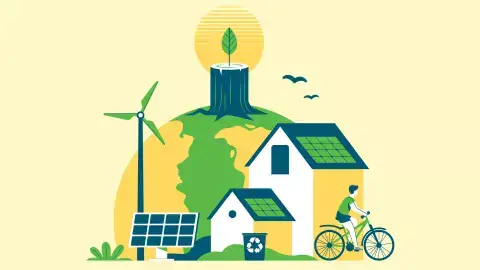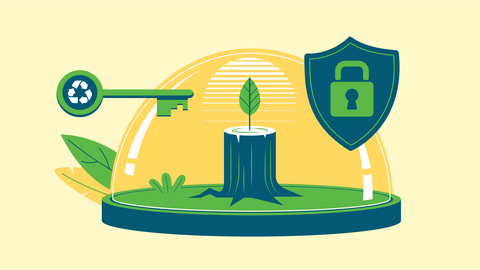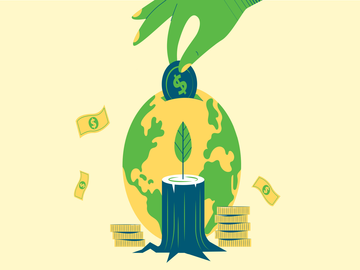Faith and Financing For Sustainable Development
It is increasingly recognised that faith leaders and faith-based organizations (FBOs) are essential contributors towards attaining the Sustainable Development Goals (SDGs) and addressing environmental and climatic crises. Acknowledging this, the United Nations Environment Programme (UNEP) launched the Faith for Earth Initiative to strategically engage with FBOs, mobilise greater faith-inspired environmental action, scale-up faith actors’ capacities and catalyse greater synergies between them and other stakeholders. This short, self-paced, e-learning course, focusing on financing for sustainable development, forms part of this commitment.
FBOs are important players in working towards sustainable development and the achievement of the SDGs of Agenda 30. One key avenue through which they can contribute is through their assets and wealth by helping to finance, and raising awareness on the need to finance, the green transitions required in all sectors of society globally. This is particularly important at a time when the SDGs face an immense funding gap and as the world seeks to build back better from the Covid-19 pandemic. This course explores the role of faith actors in financing sustainable development across different areas, leveraging the comparative advantages and particular qualities they have, notably their great investment capabilities and societal influence.
KAICIID launched the FAITH4SDGS Project. More information and material can be found here: https://www.kaiciid.org/content/sustainable-development-goals-sdgs
This course is designed for religious leaders, faith-based organizations, civil society, non-governmental organizations, UN agencies, other multilateral institutions, government officials, policy and decision-makers and individuals interested in this subject. Whilst the focus is on faith actors, faith perspectives and faith-led action, this course seeks to contribute to building synergies amongst different stakeholders, highlighting the value of engaging with faith actors in addressing this challenge.
The goals of this course are to:
- Ensure that FBOs’ investment capabilities and societal influence are geared towards the 17 SDGs that currently face an enormous funding gap.
- Provide an overall understanding of why and how FBOs should help finance sustainable development, through exploring emerging financial practices and innovative projects.
- Emphasise the value of working collaboratively with different stakeholders (FBOs and secular actors) involved in sustainable finance for mutual benefit.
At the end of this course, participants will:
- Have a clearer understanding of sustainable finance and why it is so urgently needed to tackle the world’s pressing sustainability issues.
- Have learnt about existing concepts, mechanisms and global intiatives to expand sustainable finance, with emphasis on the role of the UN system.
- Understand different faith perspectives on wealth and how these can be leveraged to ensure faith actors play a role in transitioning towards, and promoting, sustainable finance within and beyond their organizations.
- Gain insight into activities already underway by faith actors where inspiration can be drawn from.
- Better understand how to engage in this ever-growing and developing field, as well as additional resources to engage with upon finalising the course.
Since its inception in 1972, the United Nations Environment Programme (UNEP) has been the global authority that sets the environmental agenda, promotes the coherent implementation of the environmental dimension of sustainable development within the United Nations system and serves as an authoritative advocate for the global environment. UNEP’s mission is to provide leadership and encourage partnerships in caring for the environment by inspiring, informing and enabling nations and peoples to improve their quality of life without compromising that of future generations. UNEP works closely with its 193 Member States and representatives from civil society, businesses and other major groups and stakeholders to address environmental challenges through the UN Environment Assembly, the world’s highest-level decision-making body on the environment.
This interactive digital course is specifically designed for busy professionals who do not have time to take the longer, moderated eight-module course on ‘Faith, Environment and Climate Change’. They can now select the relevant thematic topics and modules and learn on the go. Administered through a Massive Open Online Course (MOOC) platform, this short course takes around two hours to complete and can be taken anywhere, anytime, at a pace that suits and from a phone or a computer.
Modern and updated browsers.
A Certificate of Completion will be issued to participants who achieve a minimum total score of 70%.
E-Learning in IRD designed for the general public


